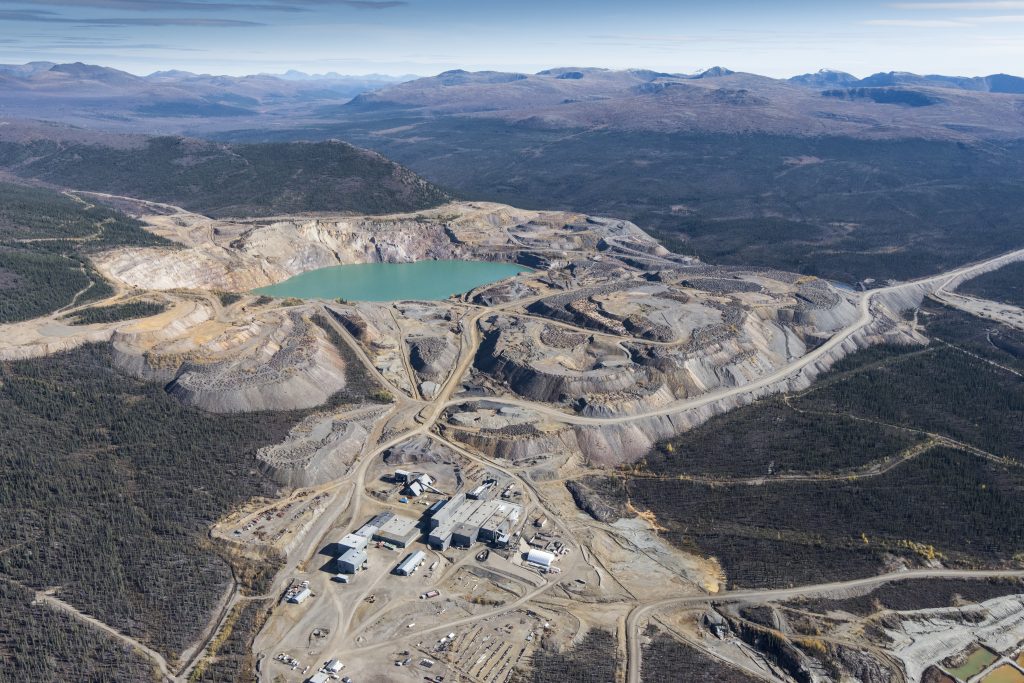
Improving The Livelihood Of Canada’s Indigenous Peoples
Our work in Northern Canada is legendary, as our project teams face extreme weather conditions, short construction seasons, remoteness, and challenges in establishing a reliable pipeline of qualified teammates who execute the complex work on-site.
By partnering with the First Nations who live locally to Parsons projects, the company sought to address two issues: hiring talented employees for the project and providing socioeconomic benefits to local communities. Today, those issues aren’t as daunting as they once were.
Years ago, our team connected with the First Nations people living locally and worked to become part of the community by providing job and skills training and employment opportunities.
There are a lot of success stories to tell, but today we’ll focus on two: the Faro Mine Complex and Imperial Oil, Norman Wells.
Faro Mine Complex, Yukon
Since 2016, under contracts from the Government of Canada, our team has worked as the Care and Maintenance contractor for the Faro Mine Complex, located in a remote area populated in part by the Kaska Dena First Nations people.
Last Fall our Faro Mine team celebrated a graduation of the first round of trainees for the Mine’s Rescue Team—a newly created team of employees who are on call at the mine on a 24/7 basis. The team, required by law, would typically be made up of miners, but Faro Mine is an inactive open-pit, lead-zinc mine that ceased operation in 1998, and no miners remain.
“Even though we’re not operating as a mine, we’re licensed as one, which means we need the rescue team,” said James Carss, long-time strategic advisor on socioeconomic benefits.
Finding people to staff the rescue team was problematic: small local populations live long distances from the mine and many lack reliable transportation required for the 12-hour work shifts.
To develop the team, we successfully outsourced recruitment to Dena Nezziddi Development Corporation, the economic development arm of the Ross River Dena Council (RRDC), a First Nation in the eastern Yukon Territory and a member of the Kaska Tribal Council. Our team continues to work closely with the RRDC to deliver socioeconomic benefits to all Kaska Dena communities, providing mentoring and training, housing/camp accommodations, wellness strategies, and employment.
“Providing training, employment, and subcontracting opportunities to Indigenous peoples is a vital component of doing work in Northern Canada. It aligns with Parsons’ Corporate Social Responsibility mission, touching favorably on governance, diversity, recruitment and retention, sustainable procurement, giving back, and being an employer of choice. It’s also just the right thing to do.” – Jamie Carss, Socioeconomic Strategic Advisor
RRDC Chief Jack Caesar has stated that the RRDC shares Parsons’ goal of developing the capabilities needed to train people and create businesses that can provide essential services.
“These opportunities and real actions will change lives of Kaska Dena people, not just communities,” shared Chief Caesar.
The Government of Canada encourages Indigenous opportunities through their contracts. From 2016 until 2022, Parsons’ First Nations engagement at Faro Mine Complex comprised 34,816 training hours, 76,682 employment hours, and $27.1 million in subcontracting.
Imperial Oil, Norman Wells, Northwest Territories
We’re currently working for Imperial Oil at the Norman Wells site in a joint venture with the Sahtu Dene Council, where the company is executing progressive remediation and reclamation services at an active oil operation site.
The operation will reach its end of life in the next decade, and the client’s goal is to build capacity and expertise within the Sahtu community so that they will be able to complete the shut down and execute all end-of-life work.
“To do that, we’ve hired and are training local indigenous peoples to complete the environmental work,” said Michael Taylor, Norman Wells PM. “We’re also providing health and safety training both locally and in other Sahtu communities to benefit the Indigenous community beyond just the Norman Wells site.”
Historically, the team mobilized employees from more populated areas in Canada’s southern region, as there weren’t enough locally trained individuals. However, during the pandemic year we found a workaround: rather than sending employees back and forth on 2-week shifts, we offered to relocate a number of Sahtu employees from their community to Norman Wells during the work season. This allowed for the continued training and building of technical capabilities, while eliminating the risk of spreading COVID to the remote community.
The team hired several local Sahtu to avoid mobilizing people from heavily populated areas to the Northwest Territories, which has very sparse healthcare facilities. This allowed the team to continue with the building season and avoid delays during what is already a very short season due to weather.
“By planning to transition work from Parsons to the Sahtu, we’re providing long-term opportunities for staff. I’m encouraged by the work ethic and eagerness to learn that we’re seeing so far. We’ve already promoted three employees and I’m proud of how everyone is working together for the betterment of the project.”
– Michael Taylor, Normal Wells PM
Helping others to advance their personal and professional capabilities is a win-win for these teams in remote locations, and just another way that we are delivering a better world.
We’re proud of these two teams, as well as other project teams in Canada that have initiated programs with First Nations, and we commend the important impact they are making.